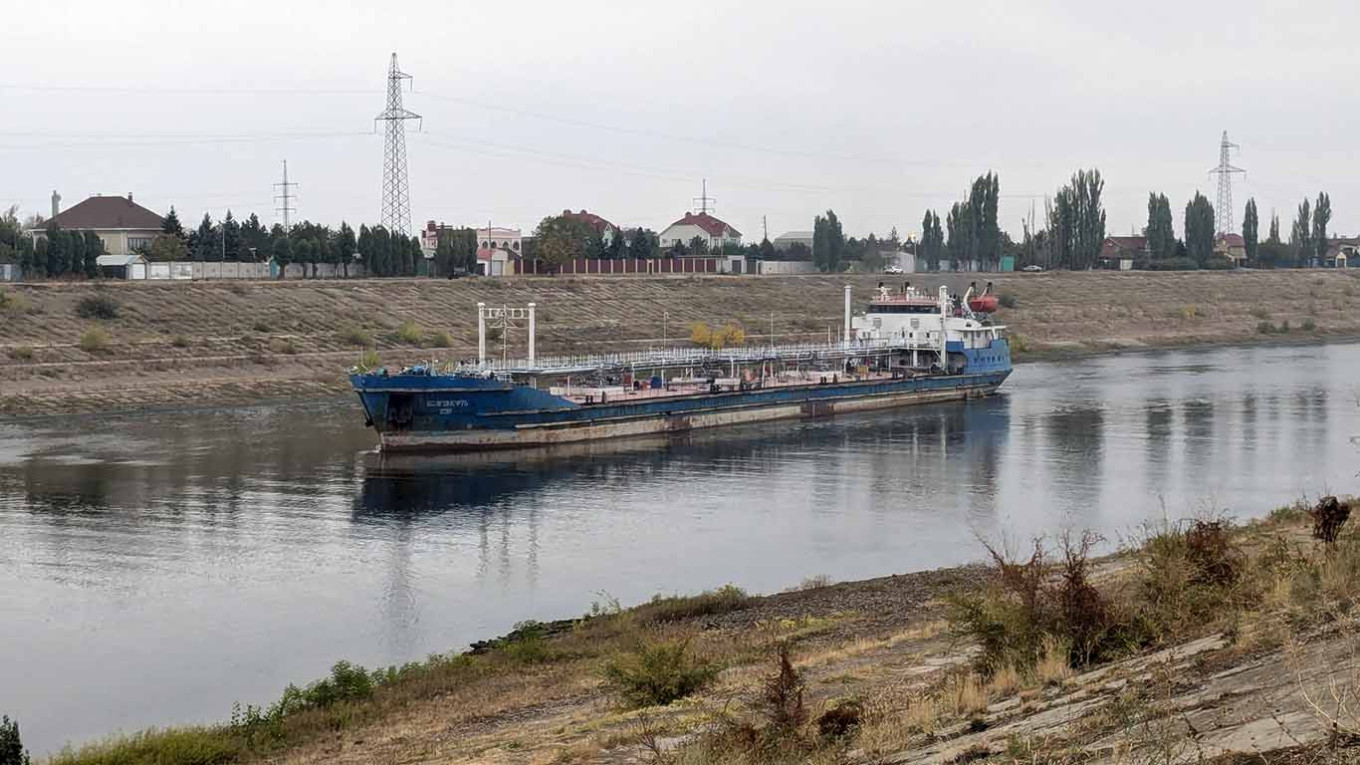Russian state transportation authorities said Wednesday that the captain of one of two oil tankers involved in a major spill in the Black Sea last year did not hold valid certification at the time of the incident.
The revelation came during a court hearing in which the regional branch of the state environmental watchdog Rosprirodnadzor is suing Volgatransneft, the company that owns the tankers. The Dec. 15 spill contaminated beaches across southern Russia and sparked multiple lawsuits from local governments and federal agencies.
According to the Federal Transportation Oversight Agency (Rostransnadzor), the captain of the Volgoneft-239 tanker — whose name was not disclosed — was operating the vessel with an expired diploma. Officials said the certification had lapsed “several days” before the storm that caused the disaster.
State media did not name the captain, but previous reports identified the ship’s helmsman as 26-year-old Anastasia Yudenko, a graduate of the Saratov College of Water Transportation, Construction and Service. She reportedly trained as a navigator and assistant mechanic for small vessels.
At the time of the spill, some media outlets claimed Yudenko was operating the ship alone. She later denied those reports in a post on VKontakte, writing: “I don’t regret taking that job. It showed me what it means to love your work. Thank you for all the good things.” The post included a video of the Volgoneft-239 at sea.
Authorities say both the Volgoneft-239 and the Volgoneft-212 tankers were carrying a combined 9,200 metric tons of heavy fuel oil, or mazut, when they were caught in a storm. An estimated half of the cargo was spilled into the sea.
According to Rostransnadzor, the tankers were not certified to operate in open waters during winter months. Both vessels were designed primarily for rivers and calm coastal navigation.
Since the spill, the city of Anapa said it has spent more than 211 million rubles ($2.4 million) on cleanup efforts. Nearly 200,000 metric tons of contaminated sand have been removed, and over 500 kilometers of coastline have been cleaned, according to officials.
The installation of watertight barriers to prevent further leakage from the sunken Volgoneft-212 is scheduled to begin in October.
On Wednesday, Rosprirodnadzor denied reports that oil was still leaking from the sunken vessel, calling the claims “inaccurate.” However, a spokesperson acknowledged that as long as the tanker remains underwater, they continue to pose an environmental threat.
A Message from The Moscow Times:
Dear readers,
We are facing unprecedented challenges. Russia's Prosecutor General's Office has designated The Moscow Times as an "undesirable" organization, criminalizing our work and putting our staff at risk of prosecution. This follows our earlier unjust labeling as a "foreign agent."
These actions are direct attempts to silence independent journalism in Russia. The authorities claim our work "discredits the decisions of the Russian leadership." We see things differently: we strive to provide accurate, unbiased reporting on Russia.
We, the journalists of The Moscow Times, refuse to be silenced. But to continue our work, we need your help.
Your support, no matter how small, makes a world of difference. If you can, please support us monthly starting from just $2. It's quick to set up, and every contribution makes a significant impact.
By supporting The Moscow Times, you're defending open, independent journalism in the face of repression. Thank you for standing with us.
Remind me later.






